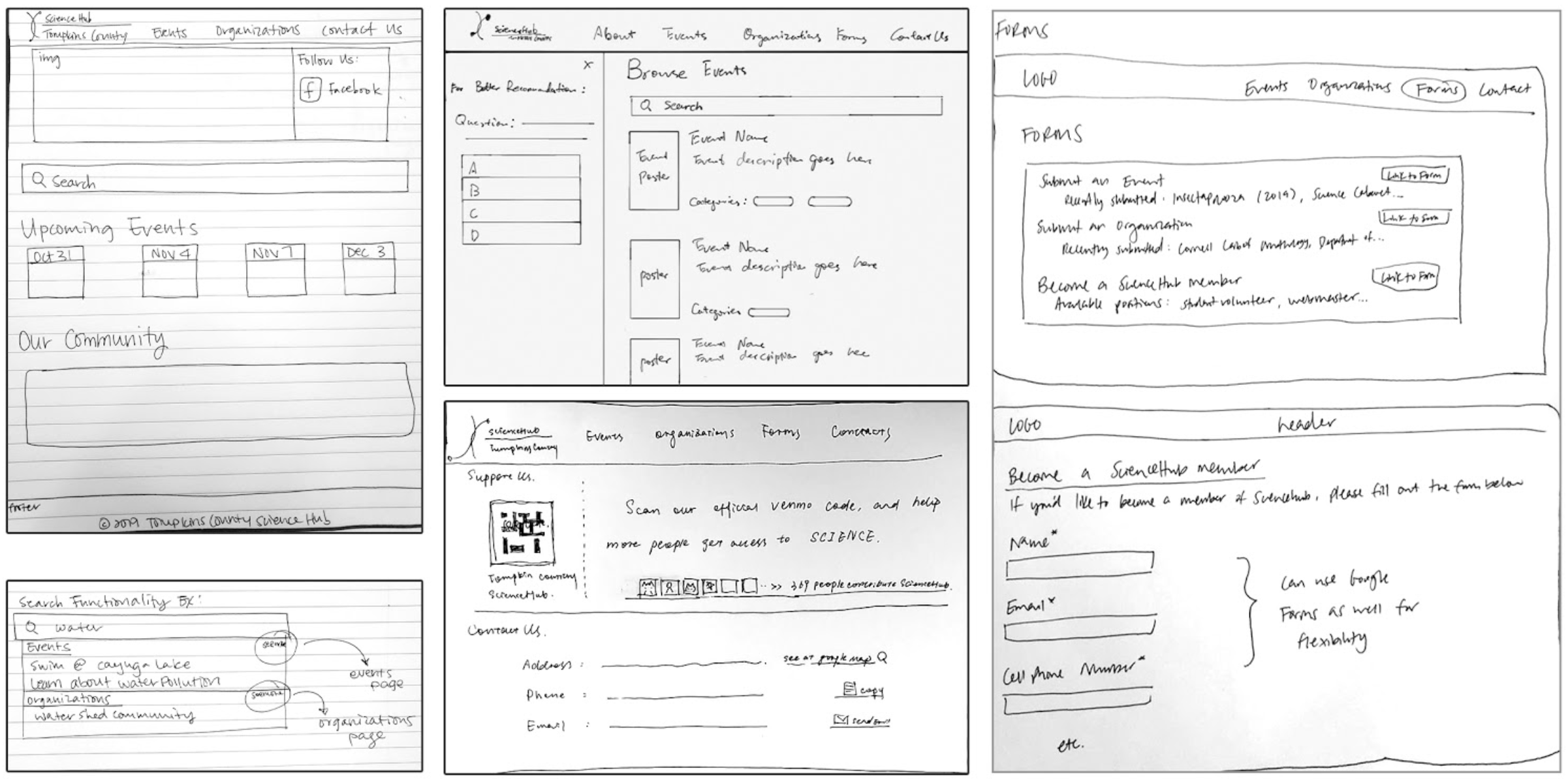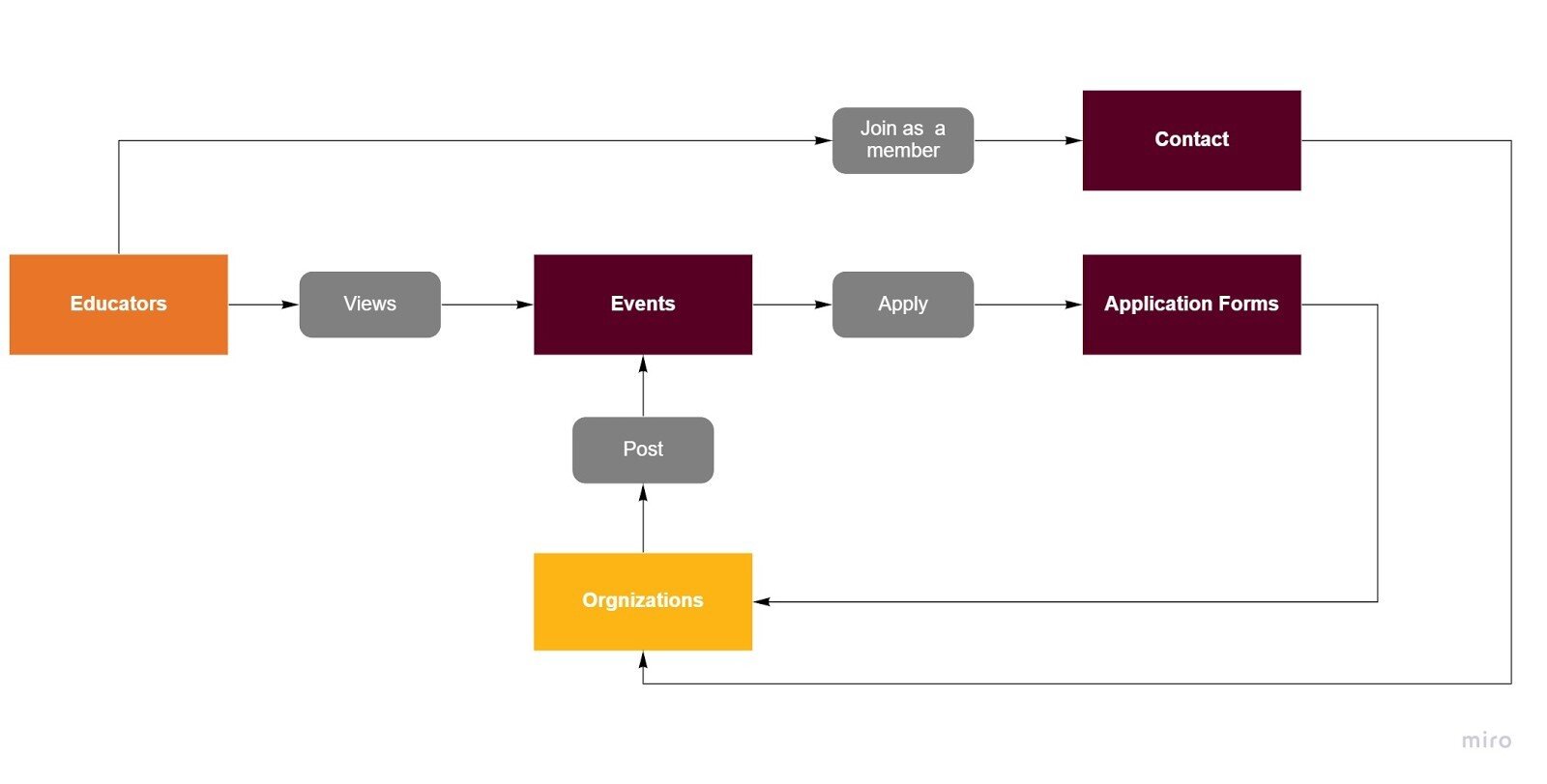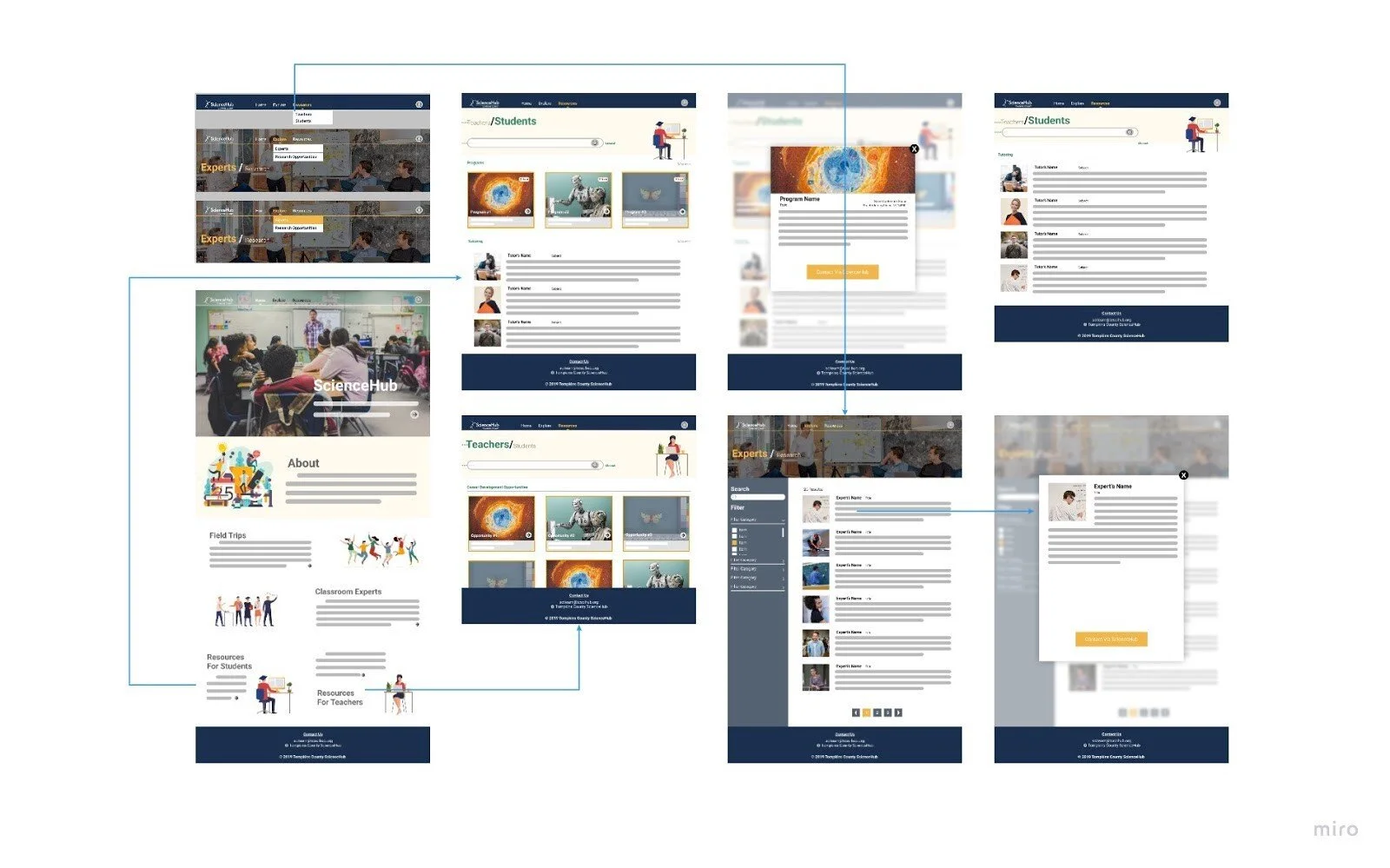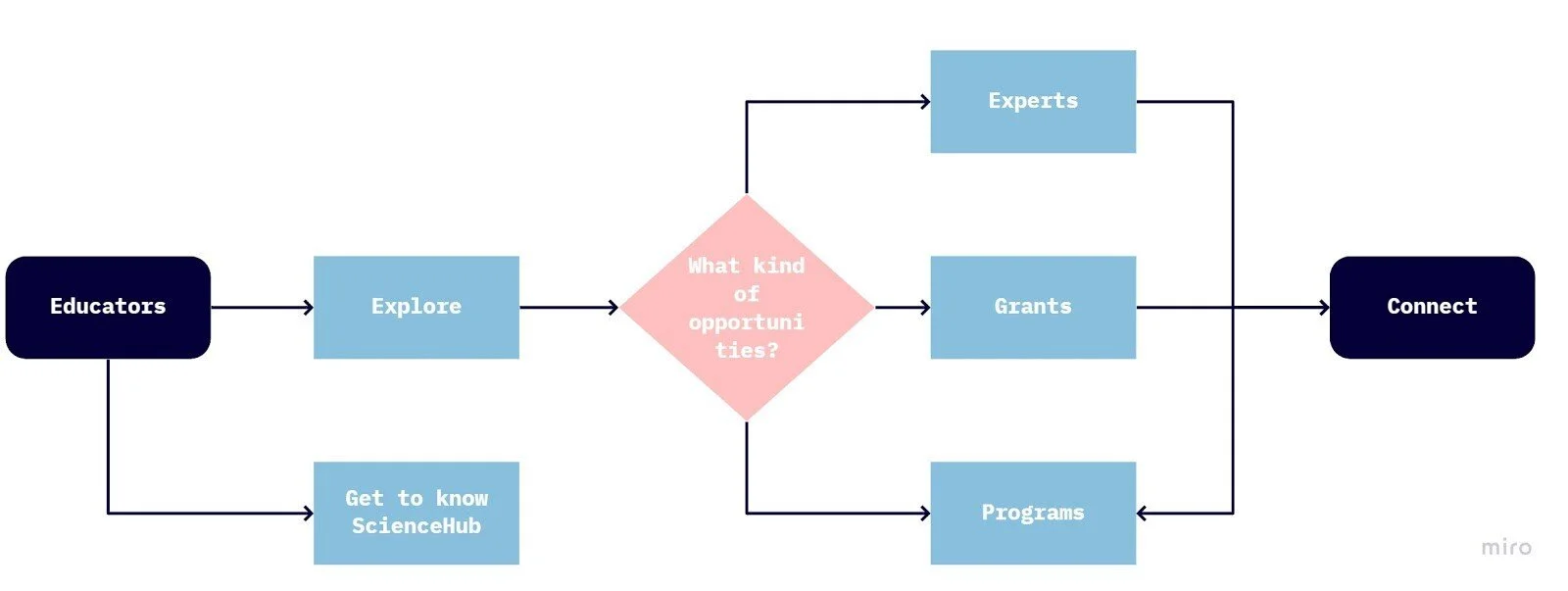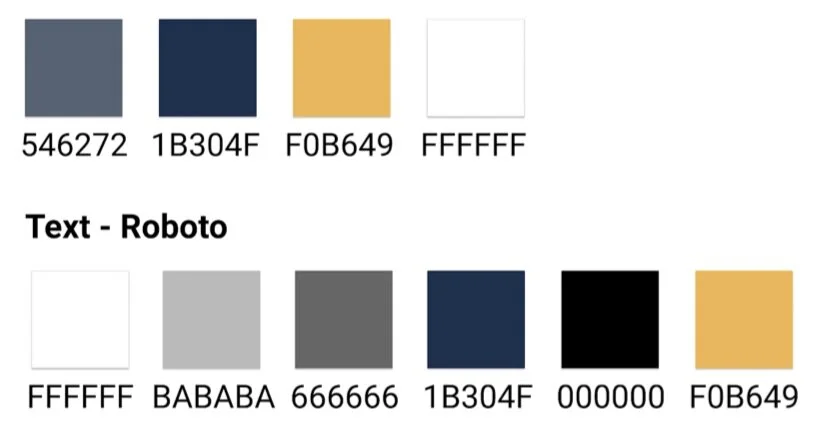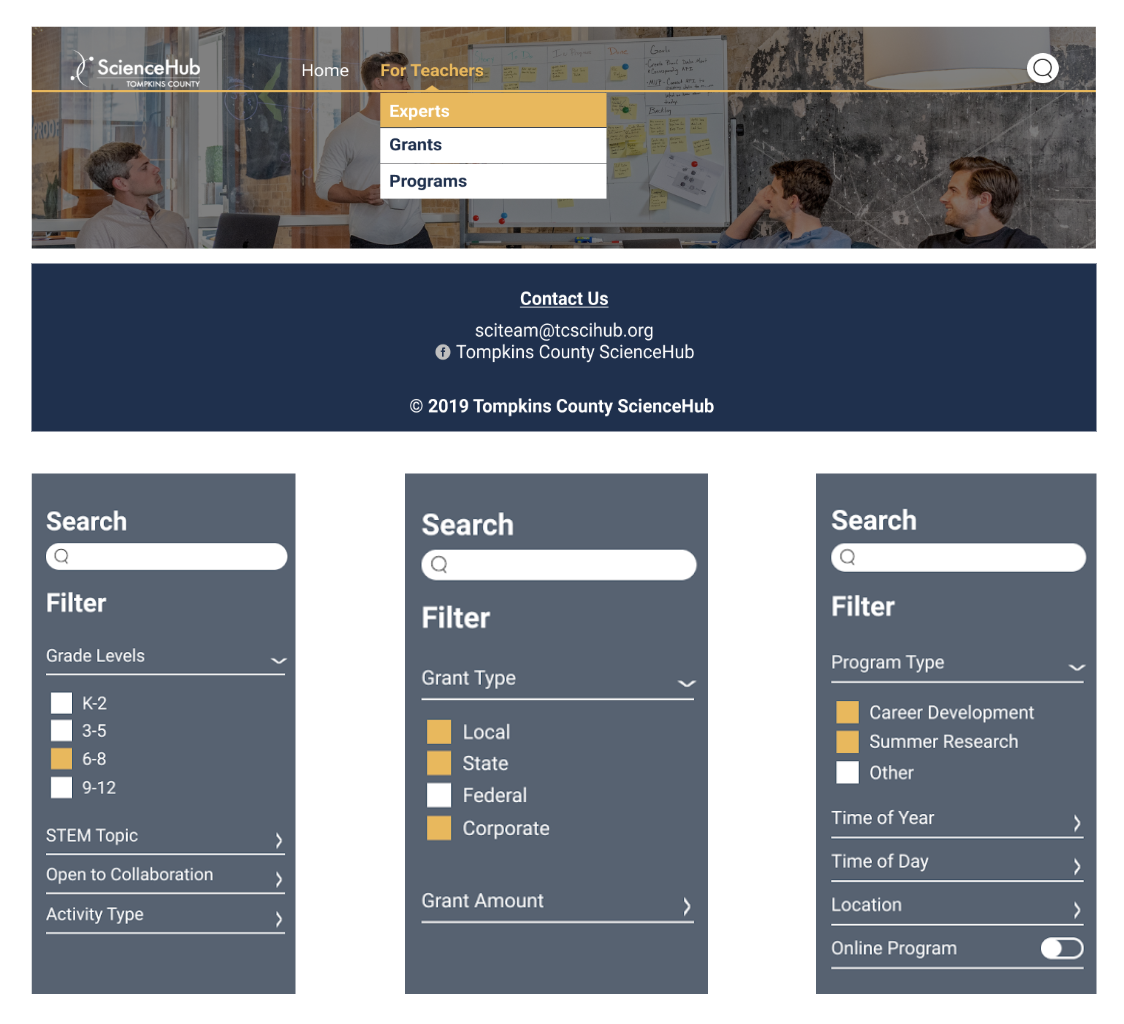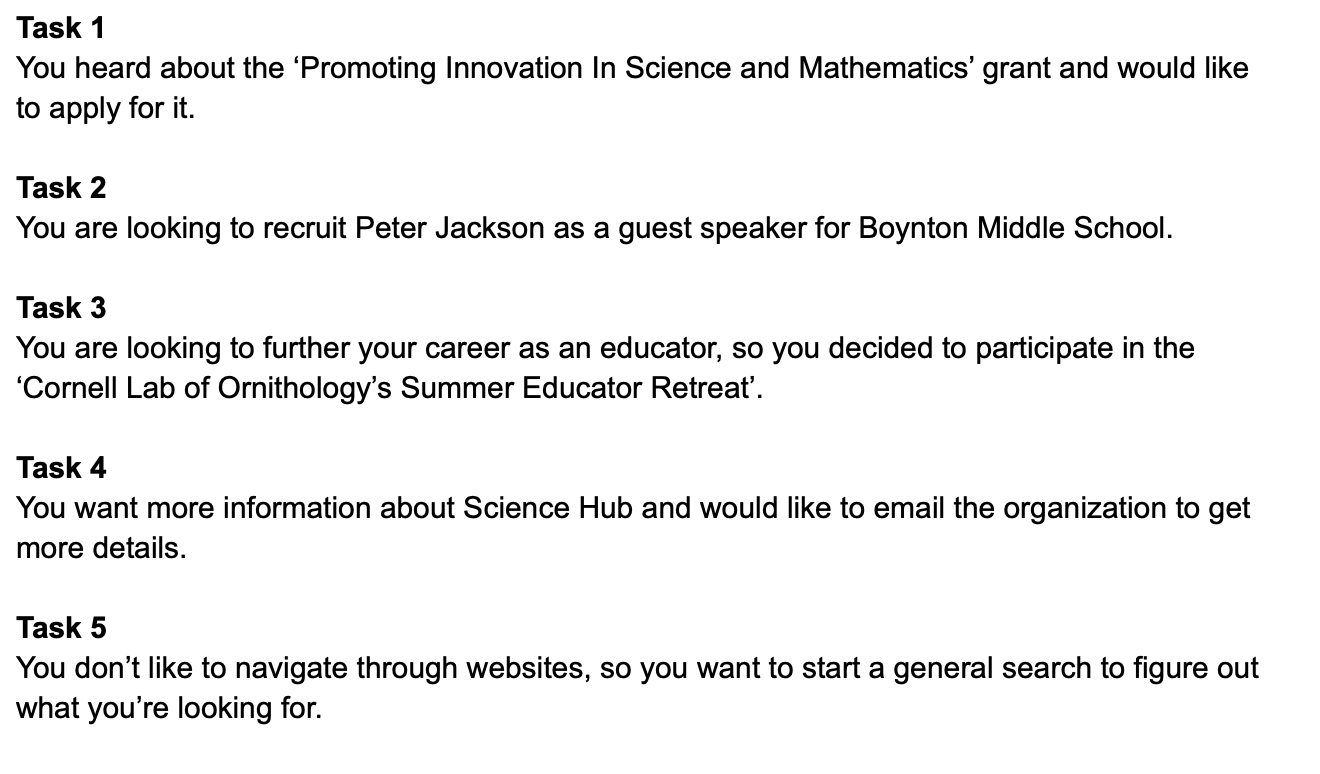Tompkins County ScienceHub
A website design for a new STEM startup targeting educators in Ithaca.
Logistics
Course: MPS Practicum
Team Members: Grace Song, Billie Sun, Alvin Yin, Mengxue Wang
My Role: UX Designer, UX Researcher
Note: Please email me at gs488@cornell.edu to request a more comprehensive report about this project.
Abstract
Our client is Dr. Norman Porticella of the Department of Communication at Cornell University. Dr. Porticella has a passion for increasing science literacy in the local Ithaca community and wanted to provide the community with STEM resources and grant information. He has an off-site web development team that created a temporary website, but wanted a new website design to attract the community to use his resource.
For the semester-long project, we were tasked with creating a website design that will allow Dr. Porticella to achieve his goal and provide a framework for his development team to work with.
Before we began the website design process, we identified specific goals for the project:
Conduct user research and market research to discover community needs and existing solutions
Use findings from user research and market research to determine a target audience for ScienceHub’s upcoming website
Design a website to connect the target audience with science-related resources to understand and enhance local science literacy
Provide comprehensive documentation for future implementation of ScienceHub’s website
Ideation
Preliminary Sketches
Low Fidelity Information Architecture
Low Fidelity Prototype
Mid-Semester Progress
Once the low-fidelity work was complete, my team identified some challenges for the scalability and scope of the project:
Scope of the project was originally too large
Scheduled interviews were delayed due to redefining the scope of the project
Translating our prototype into a functional website
We met with the client to review the deliverables for the week and inquired what we should do to still help him achieve his goal and how we should move forward to still provide a website design for ScienceHub.
Following this meeting, we came up with plausible solution to drive the project along:
Scope of the project was originally too large
Solution: Narrow down ScienceHub’s target audience to local STEM educators
2. Scheduled interviews were delayed due to redefining the scope of the project
Solution: Select experienced, multifaceted group of interviewees that could speak to multiple facets of the Tompkins County educator experience
Solution: Conduct several design tasks (e.g. sketching and user interviews) in tandem to compensate for time constraints
3. Translating our prototype into a functional website
Solution: Provide comprehensive documentation and style guide to help with future implementation
Final Deliverables for Our Client
Final Information Architecture
Color Palette/Theme
Final Prototype
Home & database pages.
Header, footer & database filter components.
Full prototype link here.
Usability Testing
Following the completion of the high-fidelity prototype, we wanted to ensure that the experience with the website was good overall. We created a usability testing prompt and conducted usability tests to make sure users were able to navigate through the website with no issues.
The usability testing prompt is formatted as such to provoke the most natural cognitive user flow possible. The are not directed tasks to allow participants to break down the necessary steps to complete the vague task.
Our participant pool consisted of anyone who is familiar with navigating through the website because the purpose of this test is to ensure that the navigation points in the website are intuitive.
We were very pleased with the results, as participants had positive reviews of our website!


